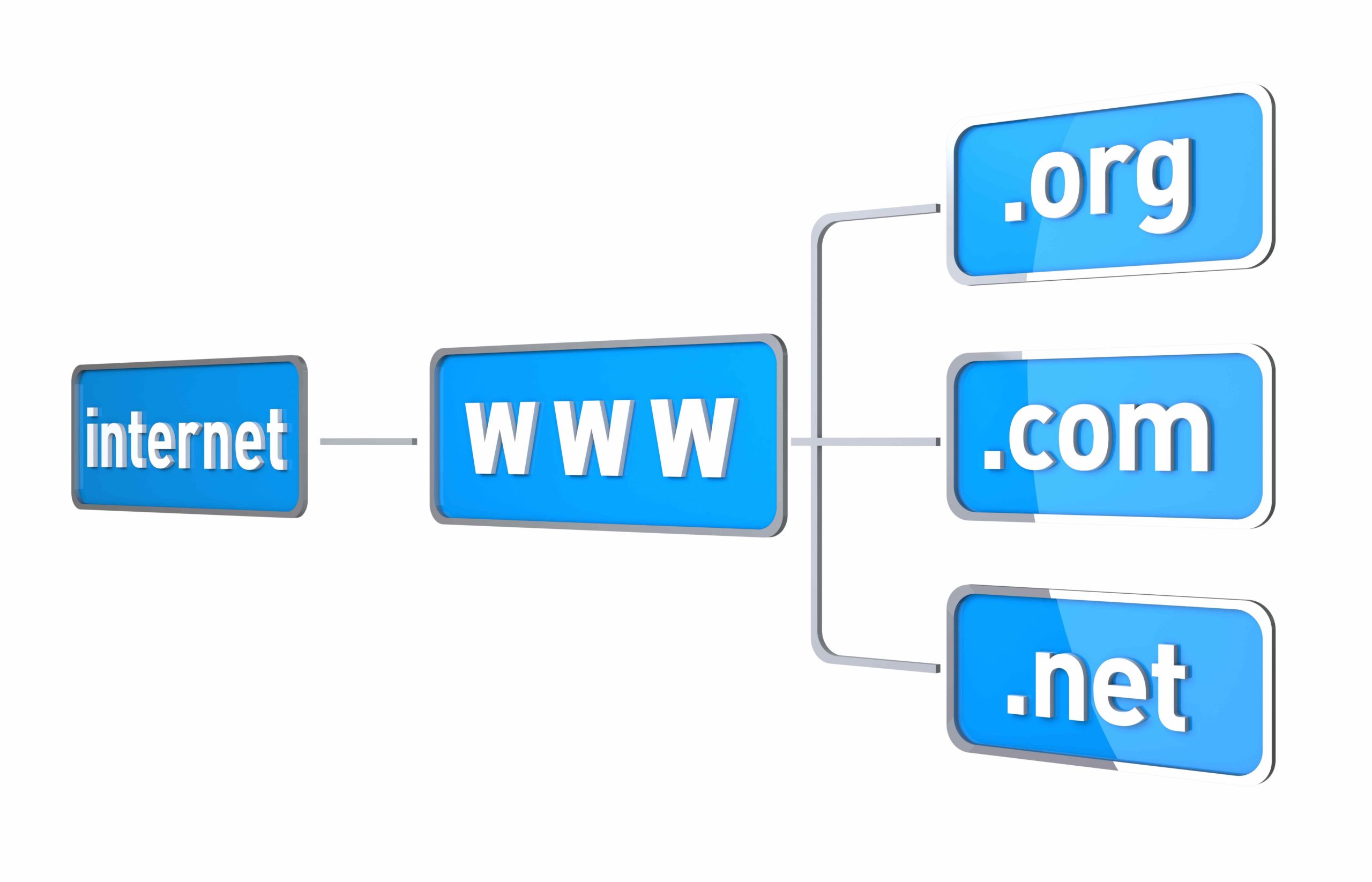
Your choice of domain extension plays a crucial role in defining your online identity.
While a specific extension may not directly impact your website’s SEO ranking, it can help your site to be easily found and effectively connected with your intended audience.
Among the sea of options, three domain extensions often take the spotlight – .org, .com, and .net.
In this article, we’ll break down the differences between them and help you make a clear decision for your website.
Key Takeaways
- The choice between .com, .org, and .net should align with your specific audience, brand identity, and the goals of your website.
- .com is recognized globally, offering versatility and professionalism, making it suitable for a variety of websites.
- .org is trusted and associated with non-profits, making it an ideal choice for organizations with community or cause-oriented goals.
- .net is linked with technology and connectivity, appealing to a tech-savvy audience and providing a global reach.
- While .com is the most widely recognized and commonly used domain extension, .net has become a popular alternative, especially when the desired .com domain is unavailable.
What Exactly is Domain Extension?
A domain extension, or top-level domain (TLD), is the ending part of a web address that comes after the domain name, like .com, .org, or .net.
Created for organizing websites based on their type, the purpose of domain extensions has evolved over time. Today, they play an essential role in the success of effective SEO strategies, making them an integral component for achieving online success.
What is a .Com Domain?
A .com domain is the most popular top-level domain (TLD). The term “.com” is short for “commercial,” and it was initially intended for commercial or business-related websites. However, over time, .com domains have become the most widely used and recognized TLD globally, extending beyond their commercial origins.
Websites with a .com extension are diverse and can include businesses, e-commerce platforms, personal blogs, informational sites, and more. The popularity of .com domains is attributed to their familiarity, credibility, and the perception of being a standard choice for establishing an online presence. The most popular news websites in the world, like nytimes.com and theguardian.com, are using the .com extension.
Pros of .com Domain
- Popularity: .com is used by over half of all websites, making it widely recognized and easy for users to remember.
- Credibility and Authority: Many well-known websites use .com, giving it an air of credibility and authority. This can boost user trust in your site.
- Memorability: .com is easy to remember, increasing the chances of users typing it directly into their browsers.
- Global Recognition: As a global top-level domain, .com is suitable for businesses targeting an international audience without tying them to a specific country or region. (more about ccTLDs read here)
- No Specific Requirements: Unlike some domain extensions, .com has no specific rules or restrictions, making it versatile for businesses operating across countries or industries.
- Default Browser Behavior: Browsers often assume .com when users type a business or website name into the search bar, directing more traffic to .com domains.
- Natural Backlinks: Due to its widespread use, .com domains tend to receive more natural backlinks, indirectly benefiting your website’s SEO.
- Greater Resale Value: .com domains have a higher resale value than other extensions, making them a valuable long-term investment.
Cons of .com Domain
- Limited availability: Due to their popularity, .com domains can be difficult to find, and the name you want may be already taken by someone else.
- Expensive: Some .com domains can be quite expensive, especially if they are short, popular, or relevant to a specific industry.
- No specific location ties: While .com domains are globally recognized, they do not tie a website to a specific location, which may not be the right choice for businesses focusing on local markets.
What is a .Org Domain?
A .org domain is a top-level domain (TLD) that stands for “organization” and is primarily used for websites associated with non-profit organizations, charities, advocacy groups, and community initiatives. The term “org” in .org stands for “organization.”
Originally designated for non-commercial entities, .org has evolved to include various organizations and projects focusing on community service, education, social causes, and more.
Given the historical association with non-profit initiatives, websites with a .org extension are often perceived as trustworthy and credible.
Like .com domains, .org domains can build trust and credibility with users, although they may not have the same impact on search engine rankings as .com domains.
Pros of .Org Domain
- Trust and credibility: .org domains are known for their trustworthiness and credibility, as they have a 30-year legacy as a well-recognized TLD. Visitors often view .org websites as reliable sources of information.
- Non-profit association: The .org extension is widely associated with non-profit organizations, contributing to an immediate perception of credibility and trustworthiness.
- Mission Alignment: For organizations with non-profit or community-oriented missions, a .org domain communicates your commitment to a cause. It helps establish a clear identity and purpose for your website.
- Community Recognition: The .org extension is recognized globally as a symbol of community service and social impact. This recognition can enhance your organization’s visibility and attract like-minded individuals and supporters.
- Global Appeal: Like .com, .org has a global reach, making it suitable for organizations with international audiences. The extension does not tie the website to a specific country or region, contributing to its universal appeal.
- Availability: .org domains are often available and may be easier to find than .com domains, which can be already taken.
- Price: .org domains are generally cheaper than .com domains, making them a more cost-effective option for budget-conscious organizations.
Cons of .Org Domain
- Wrong Impressions: Due to its common association with non-profits, a .org domain might create the impression that your website is exclusively focused on charitable or community activities. This could be a drawback if your organization has broader objectives.
- Industry Misalignment: In certain industries, choosing a .org domain might not align with general practices or expectations. Businesses in highly commercial sectors may find that a .org domain doesn’t bring the desired image.
- Not Exclusively Nonprofit: Despite its common association with non-profits, .org is not exclusive to them. This could lead to user confusion, as some may expect solely charitable or community-focused content on .org websites.
What is a .Net Domain?
A .net domain is a top-level domain (TLD) commonly used for websites associated with networking, technology, and internet-related activities. The term “net” in .net signifies its original association with networking technologies, but over time, it has broadened to include a diverse range of entities involved in the internet and technology sectors.
Websites with a .net extension often convey a theme of connectivity, making them suitable for a variety of businesses, individuals, and projects that focus on online services, technology, and networking.
Pros of .Net Domain
- Technology-oriented: The .net domain extension is a great choice for businesses that specialize in networking and internet services. Another extension popular among tech startups is .io – learn more here.
- Availability: Compared to .com, there’s a higher chance of registering a .net extension for your chosen domain name.
- Marketing: The .net extension is best for promoting internet service providers and networking websites since potential customers will immediately associate .net domain extensions with the technology industry.
- Recognition: The .net extension is one of the oldest domain extensions around, with the first .net website going live in January 1985, making it one of the more recognizable alternatives to .com.
- Affordability: On average, .net domains are cheaper than .com extensions
Cons of .Net Domain
- Perceived Limitation: Similar to .org, there might be a perception that .net is primarily suited for a specific type of website (technology-related). This may not align with your organization’s broader goals.
- Recognition: .net domains are generally less recognized and trusted compared to .com domains, which can impact a website’s credibility and trustworthiness.
- Memorability: Research has shown that .net domains have a lower memorability score compared to .com domains, making them less memorable for users.
- Branding: While .net is making strides in user familiarity and acceptance, many people still prefer .com domains, leading to the perception that .net domains are inferior. This bias can affect a site’s visibility.
.Org, .Com, or .Net: How To Choose?
All of these domain names have their own unique benefits and disadvantages. There are many reasons to choose an extension, and each one has its own advantages.
Extensions can help you differentiate your business from others and increase your online presence. If you are considering an extension for your business, choose the right extension for your business, based on the needs of your audience and the industry you operate in.
Here are our tips about what to consider when choosing a domain extension:
- Choose the .com extension if it’s available – it is popular, globally recognized and suitable for businesses with an international audience. Also, it is ideal for various types of websites, from businesses to personal blogs.
- Select the extension that is relevant to your industry.
- Understand the primary goal of your website – whether it’s a business, non-profit, personal blog, or tech project.
- Consider the expectations and preferences of your target audience.
- Be open to variations or creative alternatives if your first choice is taken.
- Ensure the chosen extension complements your brand name and overall branding strategy.
- Consider your budget and explore options within your financial constraints.
Conclusion
The choice between .com, .org, and .net can significantly shape your website’s identity. While .com offers versatility and credibility, .org conveys trust for non-profits, and .net resonates with a tech-savvy audience.
Consider your audience, brand image, and future goals to make an informed decision aligning with your website’s purpose and audience expectations.
Learn more about other domain extensions:

































































